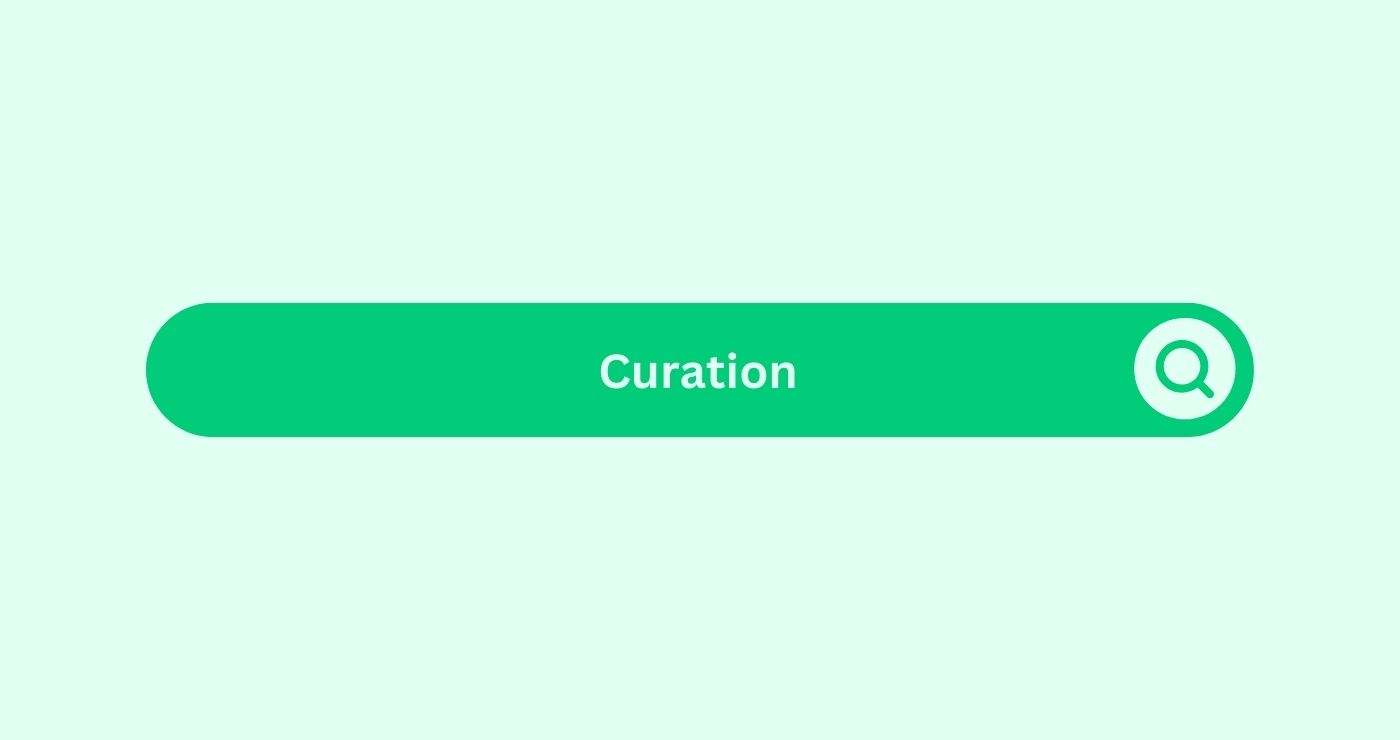Definition
Curation in the SEO space refers to the process of collecting, organizing, and presenting information from various sources to create a comprehensive and valuable piece of content. Unlike content creation, which involves generating new information, curation focuses on synthesizing existing content to provide a coherent and useful resource for readers. Effective curation can enhance the authority of your website, improve user engagementDefinition Engagement in content marketing refers to the deg..., and boost search engine rankings. It involves selecting high-quality, relevant content, adding value through commentary and context, and ensuring that the curated content aligns with your audience’s needs and interests.
How You Can Use
Example
Suppose you manage a blog focused on digital marketing strategies. Instead of writing a new article on the latest SEO trends, you decide to curate a comprehensive guide by:
- Identifying Sources: Select credible sources such as industry-leading blogs, research reports, and expert opinions. For example, you choose articles from Moz, Search Engine Journal, and HubSpot.
- Organising Content: Group the information into key themes like keyword researchDefinition Keyword research involves identifying and analysi..., link buildingDefinition Link building, within the context of content mark..., and on-page SEODefinition of On-Page SEO in Content Marketing On-Page SEO i.... Create sections within your guide that focus on each of these themes.
- Adding Value: Provide your commentary and analysis on the curated content. For instance, you might compare different strategies suggested by the sources or highlight the most effective practices based on your experience.
- Citing Sources: Properly attribute the original sources to maintain transparency and credibility.
- Presenting the Guide: Compile the curated information into a structured, easy-to-read guide that offers significant value to your readers by saving them time and effort in researching the topic themselves.
Formulas and Calculations
While curation is more qualitative than quantitative, some aspects can be enhanced with analytical methods. For instance, when curating content on SEO trends, you might:
- Analyse Data: Use tools like Google AnalyticsDefinition In SEO, analytics involves collecting, measuring,... to identify which types of content have historically performed well on your site.
- Evaluate MetricsWhat are Metrics in the context of SEO? Metrics in SEO refer...: Look at engagementDefinition Engagement in content marketing refers to the deg... metricsWhat are Metrics in the context of SEO? Metrics in SEO refer... such as time on pageDefinition In the realm of SEO, time on page refers to the a..., bounce rateDefinition Bounce Rate in social media marketing refers to t..., and social shares to determine which curated content resonates most with your audienceDefinition The term "Audience" refers to the group of indivi....
- Content Scoring: Develop a scoring system to evaluate the quality of sources based on criteria like authority, relevanceDefinition In SEO, relevance refers to the degree to which a..., and regency.
By leveraging these analytical approaches, you can ensure that your curated content is both high-quality and highly relevant to your audienceDefinition The term "Audience" refers to the group of indivi....
Key Takeaways
- Builds Authority: Curated content can position your site as a go-to resource for comprehensive information on a topic.
- Saves Time: Helps your audienceDefinition The term "Audience" refers to the group of indivi... by aggregating valuable information in one place.
- Enhances SEO: Well-curated content can improve search engine rankings by providing comprehensive and relevant information.
- Engages AudienceDefinition The term "Audience" refers to the group of indivi...: Keeps your readers engaged with a variety of perspectives and insights.
- Supports Content StrategyDefinition Content strategy involves planning, creating, pub...: Complements original content by filling gaps and providing diverse viewpoints.
FAQs
What is Curation?
Curation involves collecting, organizing, and presenting information from various sources to create valuable and comprehensive content.
Why is Curation important in SEO?
It enhances site authority, improves search engine rankings, and keeps your audienceDefinition The term "Audience" refers to the group of indivi... engaged with high-quality, relevant information.
How do you select sources for Curation?
Choose credible, relevant, and authoritative sources that provide valuable insights on the topic you are curating.
What are the benefits of Curation?
Curation saves time for your audienceDefinition The term "Audience" refers to the group of indivi..., builds your site's authority, enhances SEO, and supports a comprehensive content strategyDefinition Content strategy involves planning, creating, pub....
How often should you update curated content?
Regularly review and update curated content to ensure it remains accurate and relevant.
Can Curation replace original content?
No, curation should complement original content by providing additional perspectives and insights.
What tools can help with Curation?
Tools like Feedly, Pocket, and Scoop.it can help you find and organize content for curation.
How do you add value to curated content?
Add your commentary, analysis, and insights to provide context and enhance the value of the curated information.
Is it necessary to cite sources in curated content?
Yes, proper attribution is crucial to maintain transparency and credibility.
How can you measure the success of curated content?
Use engagementDefinition Engagement in content marketing refers to the deg... metricsWhat are Metrics in the context of SEO? Metrics in SEO refer... like time on the page, social shares, and user feedback to gauge the effectiveness of your curated content.




